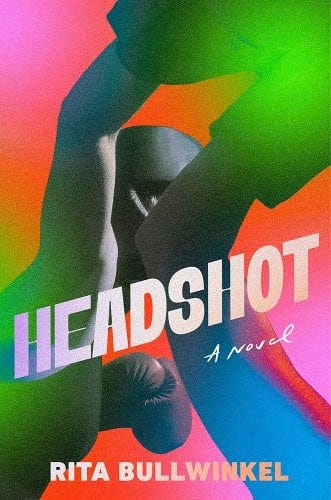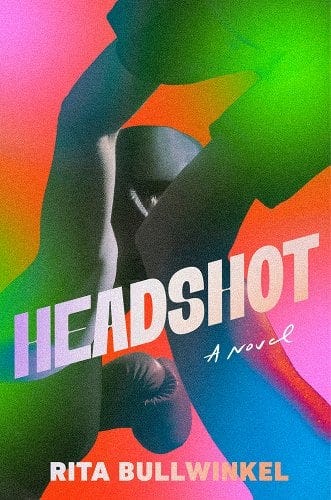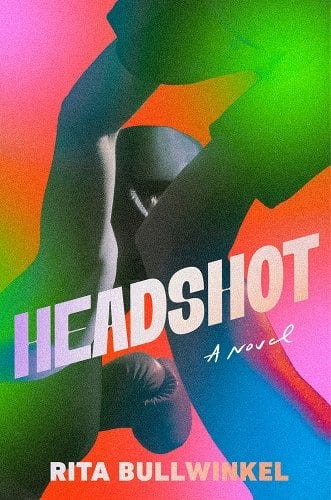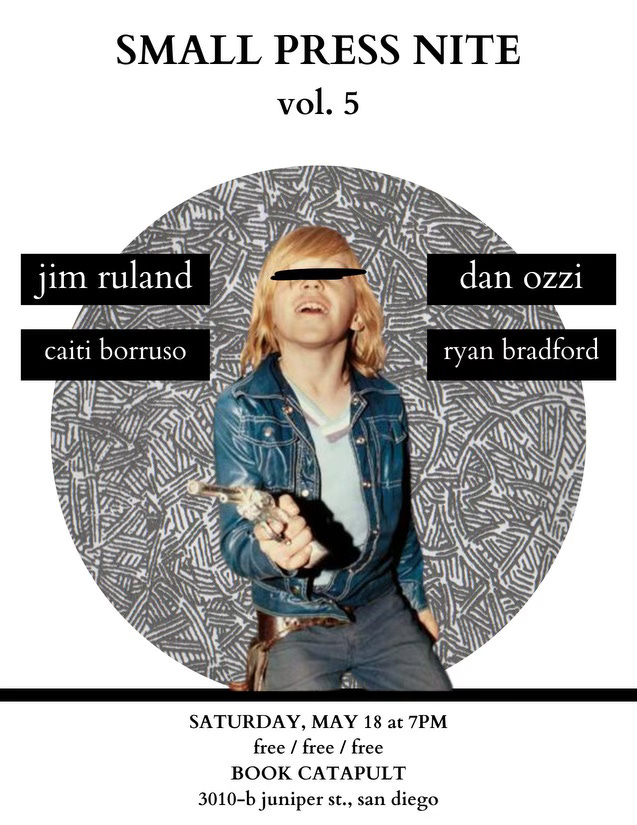What it means to be a boxer
Rita Bullwinkel’s Headshots, Remember the Lightning, Small Press Nite
When I was a kid, I fought with my brother all the time.
We are thirteen months apart and grew up playing sports. We played driveway basketball, sandlot baseball, and youth league soccer. We were on the Knights of Columbus swim team. We played one-on-one “touch” football with my dad as permanent quarterback.
We turned everything into a competition and fought constantly. Being older I was taller but my brother was more athletic so we were more or less evenly matched. Tackle football games turned into blood feuds, driveway battles lasted until the sun went down. We wanted to beat each other more than anything in the world.
This carried over into normal life. We were always trying to get over on each other. If we were doing yard work and I stumbled upon a walnut from our tree I’d wing it at my brother without warning and he’d do the same. One autumn I had to throw away my favorite pair of jeans because of all the stains from being pegged in the legs by the hard black walnuts that my brother hucked at me.
We were cheap shot artists. My brother once kicked me off a ladder. One time I slammed his head into the hallway wall, concussing him.
We were vengeful little fuckers with short fuses and long memories.
But we had one rule: no hitting each other in the face.
This probably saved us from seriously maiming or even killing each other, but it left me woefully unprepared for actual fights later in life.
In high school, the year I discovered beer and weed, I got into all kinds of brawls on the basketball court. I’d wade into skirmishes with my hands at my sides and none of the insane anger that powered my battles with my brother. I was slow to learn to protect my face, but even then I never felt like the fight really started until I got punched in the face, but by then it was often too late.



How do you fight someone you don’t hate? How do you prepare to fight an opponent who is more like you than not, that if circumstances were different might even be your best friend? How do you step into the ring to fight someone who may very well understand you better than you understand yourself?
These are some of the questions that dog the eight young women who travel from all over the country to Bob’s Boxing Palace in Reno, Nevada to compete in the Women’s 18 & Under Daughters of America Cup in Rita Bullwinkel’s astounding debut novel Headshot.
The novel is structured around the tournament bracket and broken down into fights. Instead of Chapter 1 we get Artemis Victor vs. Andi Taylor, and so on. This continues until the field is narrowed to four, then two, and finally one.
The point of view is third person omniscient. The narrator knows everything that has happened to everyone at Bob’s Boxing Palace—the girls, their coaches, their parents (when present), etc. The narrator knows what got these girls to take up the sport and what drives them to fight.
Headshot offers an interior look at these young woman as they fight each other in a relatively anonymous competition that operates without the scrutiny of sponsorships, hype, or even personal animosity between the individual fighters. There’s plenty of action but if you want blow by blow accounts of each round this is not the book for you. There are plenty of other books that do that very well.
What Bullwinkel offers is far more intimate: a glimpse (or headshot) of these women’s minds as they put themselves to the biggest test of their young lives. It’s more cerebral than literary, though it is that, too. Headshot is to boxing what Chris Bachelder’s The Throwback Special is to football. (The Book Marks review aggregator collected 12 reviews of Headshot, and every one of them is a rave, which must be some kind of record.)
The book is full of moments like this:
“You can’t train for a sport unless you believe you have control over your own destiny. The point of training is to change the outcome of the future. You train to change something you otherwise would have lost.”
You think you’re reading a book about girls fighting, and you are, but then you’re asking yourself if you even believe in destiny much less have control over it. What Headshot does that is unique and makes this book truly special is it provides snapshots of the girls’ futures, and it’s absolutely devastating:
“Artemis will be home, alone, her husband long dead from something, and her hands will be so spoiled it will be hard to open the refrigerator door. No one in her life at that point, including her daughter, will have any remembrance of the meaning attached to what it means to be a boxer. And the boxer part of Artemis will be long gone, too. She will have had four separate lives since the Daughters of America, not one of them involving boxing, and so her injury, those un-closable fists, will not be some battle relic, but, rather, a sorry, pathetic disability.”
Good lord.
To read reviews of Headshot is to be subjected to boxing metaphors and this one is no different: Bullwinkel doesn’t pull any punches.
Of course you will have your favorite fighter. Of course you will hope they win. Of course you will be disappointed when they lose because in every fight there is a winner and two losers: the one who was defeated and the one who lost something of themselves to achieve victory. There is very little glory to be had at Bob’s Boxing Palace, just as there is very little glory to be had in my life or yours, but this book is a marvel.
When I started training at House of Boxing last year, if you asked me if I believed in destiny I probably would have said no. Destiny was for characters in the Marvel Cinematic Universe.
Today?
I absolutely believe in it, and not only that, I wholeheartedly agree with Bullwinkel’s assessment: you train to change your destiny.
Why did I start training?
I was drawn to the spectacle of the gym: The sound of gloves hitting the heavy bag, the coaches urging the fighters on, the legit boxers sparring in the ring, amateurs training for their next bout, rumors of the champion passing through the gym, shaking hands with everyone who was putting in work.
I loved all of it. I still do.
But I’m 55 years old. I’m not looking to get into any more fights. I want to keep my dental work. I don’t want to subject my brainbox to any more damage. I don’t need any help losing my vision or my hearing or my memory.
My adversary is Death. That’s the opponent I’m training for. I go to the gym three or four times a week in the hopes of avoiding becoming the “husband long dead from something” because that’s the path I was on before I took up boxing. I’m training “to change something [I] otherwise would have lost.”
I know I can’t change the final outcome. Death comes for everyone. No one escapes the final bell, but when the reaper comes charging out of its corner, hopefully I can hold it off for a few rounds and go the distance.
There’s no glory in that. There’s no tournament to train for. No trophy for the trophy case, but there’s no anger either. To be honest, it doesn’t even feel like fighting.
It feels like living.
Remember the Lightning
The new edition of Remember the Lightning: A Guitar Pop Journal is out — Vol 3 — and I have an essay about Hermosa Beach legends The Last in it. It’s available for order as a print or ebook and features of ton of talented writers. To learn more, including how you can order your copy, visit Remember the Lightning.
LA Times Book Club
I know for many of you the last thing you want is another newsletter in your inbox, but I’ll be writing the newsletter for the LA Times Book Club this summer. If you’re a subscriber to the LA Times, you can sign up for free. My first one goes out this Saturday and will continue every other week.
Saturday is Small Press Nite
Hey San Diegans, don’t forget I’ll be participating in this free event on Saturday at 7pm at The Book Catapult with
and and Caiti Borruso hosted by . See you there!




Bumping Headshot to the top of my list after reading this! Great review 🤘
Good stuff! As un-punk as it is to say, this stanza from The Boxer by Simon and Garfunkel gets me every time:
In the clearing stands a boxer
And a fighter by his trade
And he carries the reminders
Of every glove that laid him down
Or cut him till he cried out
In his anger and his shame
"I am leaving, I am leaving"
But the fighter still remains